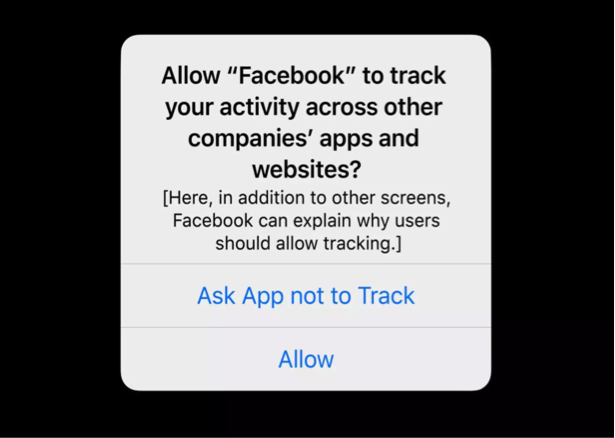
Facebook marketers, take note. Apple’s iOS 14 update is here to turn a few things upside down. Facebook itself has published a report about how the new release may affect your ads. It’s kinda serious.
You may have come across that and a few other articles addressing the topic, but a mix of apprehension and complicated language may have added to your confusion. But don’t worry. In this article, we’ll clarify:
- What the update is about (and why Facebook advertisers should wise up to it).
- How the Facebook pixel will be compromised by Apple’s new iOS 14.
- What marketers can do to outsmart upcoming challenges.
Read on:
How Will the iOS 14 Update Affect Facebook Advertising? Is It That Big of a Deal?
From small businesses to large enterprises, this update can strike companies that rely on Facebook advertising in different ways.
In effect, businesses will have to ask for users’ permission before tracking and collecting their data across apps and websites owned by other companies. This data collection was already active before the update, only the permission request wasn’t mandatory. Now, it is.
It will look something like this:

It’s comparable to website cookies, which identify users in order to create a personalized website experience. You’ve seen them countless times whenever you visited a new website:

But the question is: why wouldn’t users allow data tracking if it’s meant to deliver personalized ads to them?
Truth is that a lot of people have no idea their data (such as activity on other websites) is being used for ad personalization. After documentaries like The Social Dilemma came to light and spread a negative perspective about social networks in general, people may avoid having their information tracked out of fear they’re being exploited by technology.
When, in reality, all advertisers want to do is to cut through the clutter and offer deals users may be interested in.
So, what does all of this mean for Facebook ads?
In general, the new iOS 14 update means less targeted advertising. Which is bad, since the heart and soul of personalized ads lies in targeting and retargeting. These will be rendered useless if the Facebook pixel isn’t able to work its magic.
What is the Facebook Pixel, and How Will It Work After the Update?
The Facebook pixel allows advertisers to measure the effectiveness of their campaigns by making sure they’re targeting the right audience.
In short, marketers can copy and paste a few lines of code to their website’s HTML header, then receive updates about the actions of users on their company website. This way, advertisers will create ads that are relevant to user searches and needs.
Bluntly speaking, if users choose not to have their data tracked, the Facebook pixel won’t work. As a result, audience growth and targeting will become limited – and so will sales originating from Facebook ads.
Who Will Be Affected?
All businesses that count on sales growth from Facebook ads will be affected by the iOS 14 update and are at risk for a plummet.
The damage could be a drop in 60 percent of sales deriving from Facebook ads. That said, it’s time to consider the alternatives.
Is There a Way to Contour the Update?
Yes, there are several ways to dodge the update. Here are a few:
- Remove iOS devices from campaigns that need to generate a lot of revenue. Focus on Android devices, instead.
- Rely on other marketing channels other than Facebook (email marketing, Google, SEO, Instagram, pay-per-click advertising).
- Harness the power of lead magnets to collect user information before the update asks for it. Lead magnets aren’t only a great way to build your email list: now, they can also help you customize your Facebook audience.
Facebook Advertising Won’t End. It’ll Simply Take on a New Form.
At least, that’s what marketing experts believe.
Plus, we shouldn’t worry too much ahead of time. As the update gets underway and eventual challenges arise, advertisers marketing experts may learn to circumvent them and share their experience as time moves on.
Don’t we adapt to sudden SEO algorithm strikes every year? Think about that. Workarounds will surface eventually, especially from marketers who don’t want to lose their profitable return on Facebook ad spend.